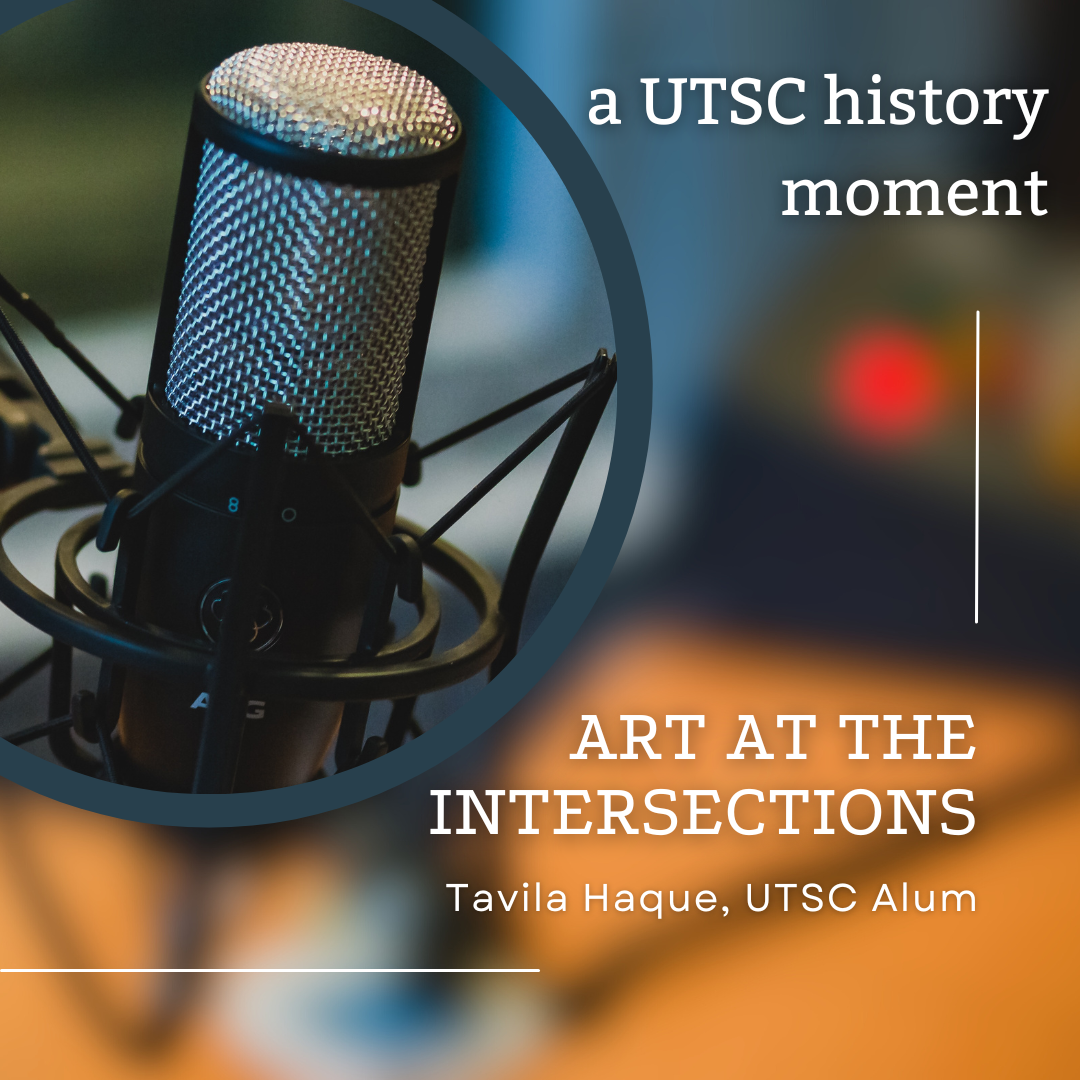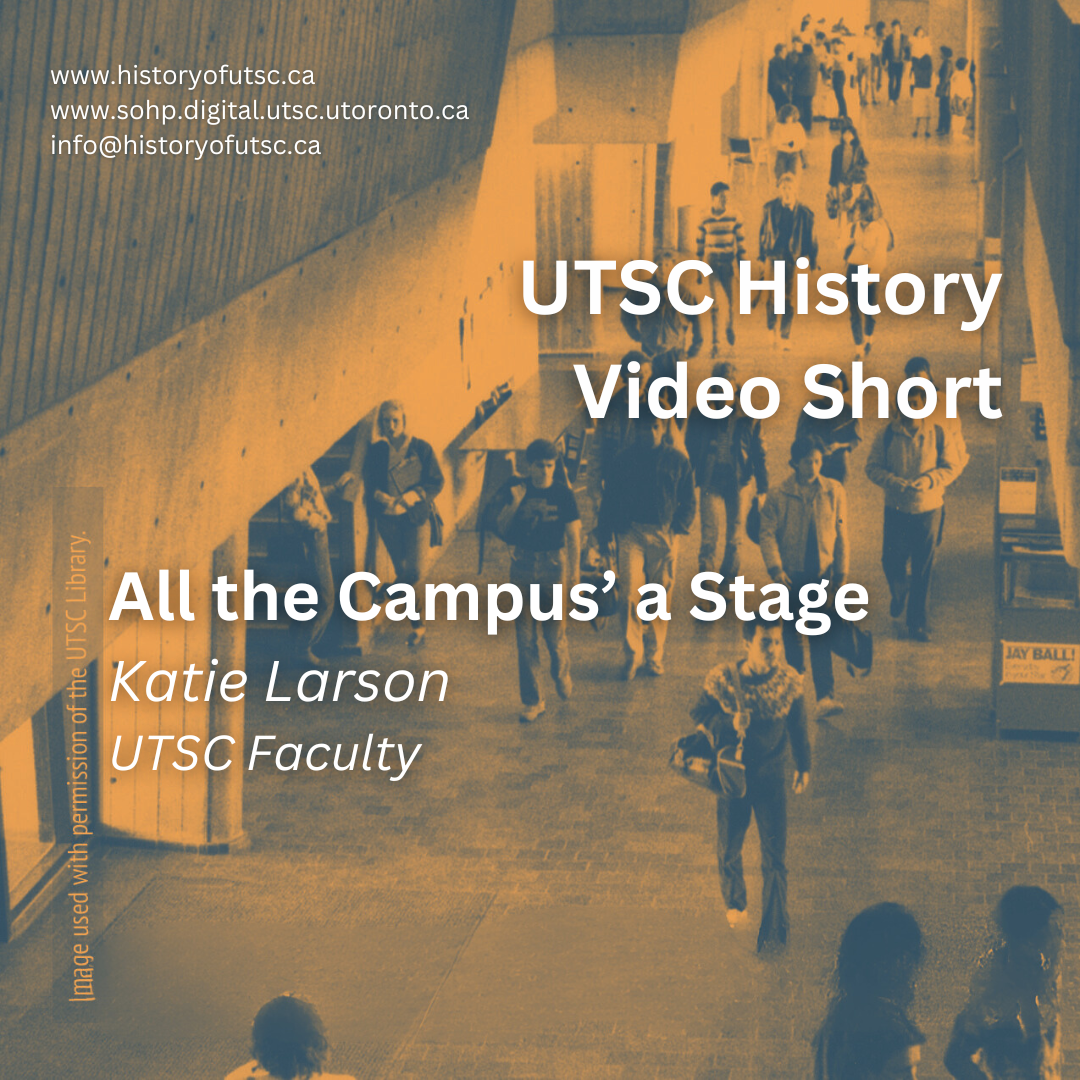Devon Muhic and Sandra Baxter Muhic, a mother-daughter duo who attended UTSC in the 1990s and 1970s, respectively, describe the work ethic that characterizes the UTSC student body and the effects of this ethic on the nature of student life at the university.
View Transcript
0:01
[Devon:] People always figured you were paying your own way if you’re coming here. I think everybody, I mean, I worked part-time, and I was lucky enough to get some help, but I think, when I came here, very few people living in residence, which is probably still the case,
0:16
and it’s a commuter school, right? So everybody had, like, an old car or their mom’s minivan, and we used to joke, it was like the minivan school
0:24
because I knew so many people who dropped their little brothers or sisters off at school and then come to class, and everybody figured you had a job.
0:33
And I remember one guy talking about how he wasn’t working and it was like, “Well what do you mean?” “Oh, well, no but I’m gonna work,’ “Oh, okay,” ‘cause it just seemed like it was such a commuter place.
0:42
And at least when I was coming here, there was a lot of people just going part time, and they’d take like three courses, and then they’d be working a full-time job. And it was just, it was a lot of work ethic, and it was kind of one of those things where it’s like,
0:54
“Oh, you go to Scarborough, okay.” And you go downtown, it’s like, “Oh, well everybody up there [in Scarborough] works as well as go to school.”
1:00
It’s like, well, yeah, right? So that was something that I always found kinda interesting. Everybody was getting each other jobs. You’d sit around and talk in the summer,
1:09
“Do you want a summer job yet? Do you need one? They’re hiring at my restaurant, they’re hiring here”, right? So that was kind of the perception of it, at least when I went there.
1:19
[Sandra:] This is maybe a different type of student go here. [Devon:] Yeah, yeah. I thought so.
1:24
[Sandra:] A lot of the other universities, not in Toronto specifically, Toronto’s in a category by itself but, a lot of students live in residence, come from out of town — [Devon:] And they have big student —
1:34
[Sandra:] And they have more money. [Devon:] Or big student loans. [Sandra:] Yeah, big loans. [Devon:] Big loans, right? [Sandra:] Yeah. [Gregory:] I agree. [Devon:] I knew so many people who could get money through a loan, but had decided not to because they were living at home, so they were paying it off a little at a time, and they were working their way through.
1:46
[Sandra:] That’s very interesting, and you know what, I think it has a tradition of that because when I came here, Scarborough was the first university in Ontario to offer the credit system.
1:59
It used to be when you went full-time university, you had to take five courses, and you’d get your year. They began the one course, one credit,
2:09
so people would be taking less than the five, or they’d come and they’d do part-time. I actually did the last couple of years part-time. I couldn’t afford it, and it was wonderful. Half the people in your class would be coming part-time. That’s a good observation, so, and I think for people who do that,
2:27
they really want the education. I don’t think anyone who’s having to pay for their own education, becoming part-time, is interested in skipping class — [Gregory:] Yeah, exactly.
2:38
[Sandra:] Or not getting an education, so in a lot of ways that’s a little bit of a different value from some of the things I’ve seen with other parents, maybe, and the children they’ve sent to university.




